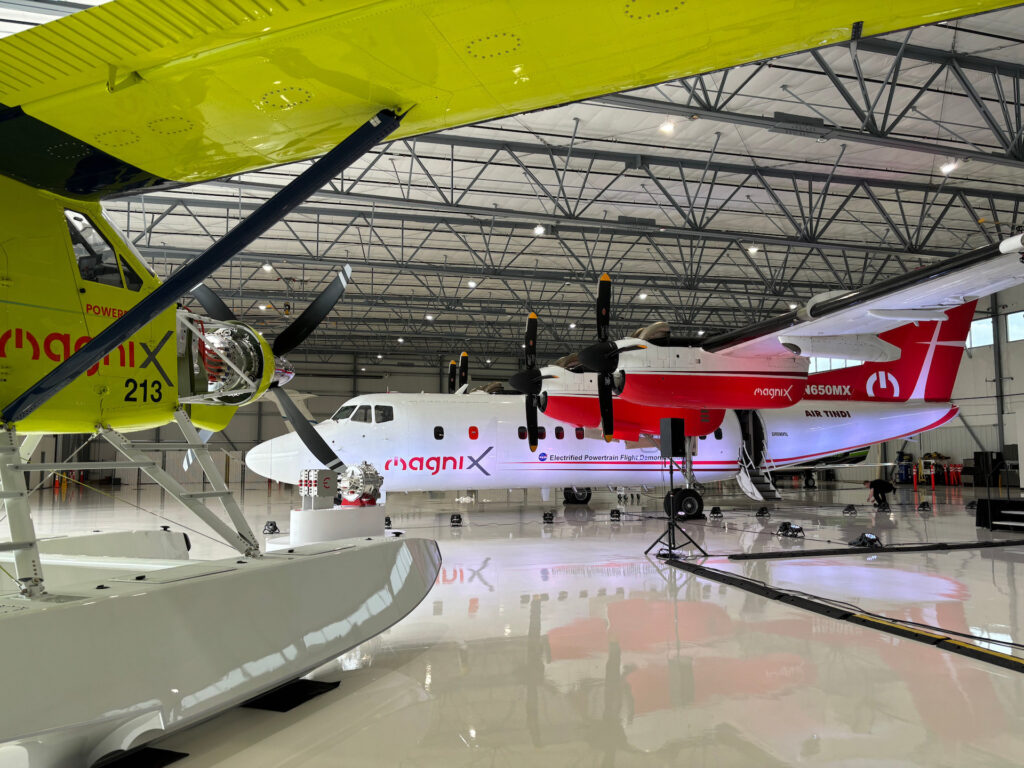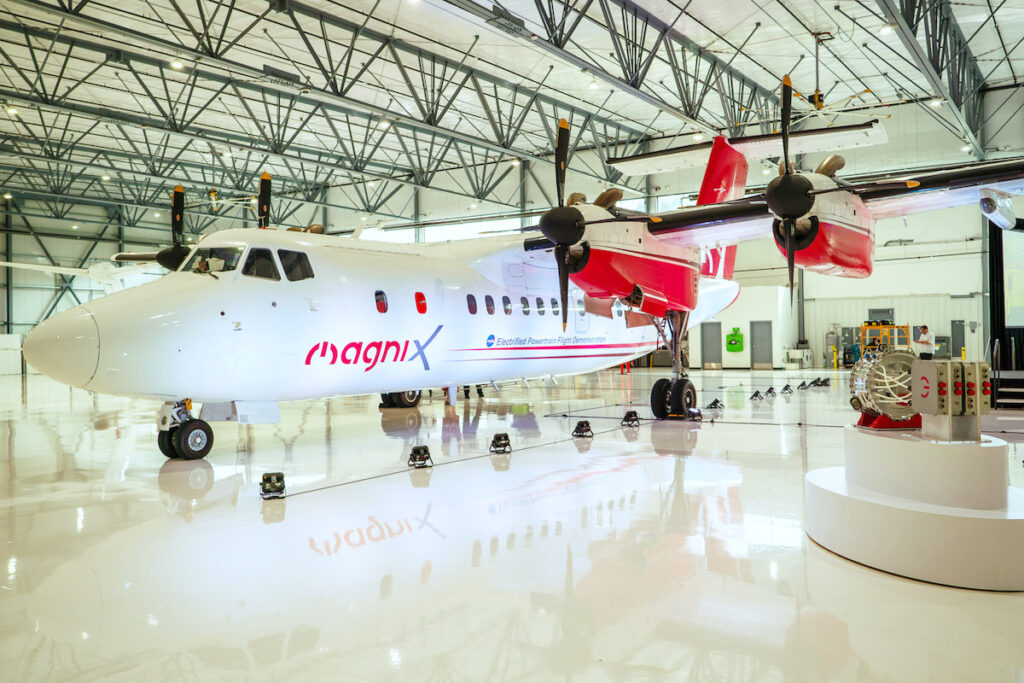This announcement marks the latest in a number of milestones that magniX has been achieving within the framework of its collaboration with NASA.
The Seattle-based firm defined the retrofit design for the demonstrator aircraft, known as Preliminary Design Review (PDR), back in February 2024.
This was followed by ground testing at NASA’s Electric Aircraft Testbed (NEAT) facility in Sandusky, Ohio, in April. Then flight testing with the still unmodified Dash 7 aircraft took place in June, in order to collect baseline data.
The next stage is the replacement of one of the aircraft’s existing conventional turborpops with a magniX electric powertrain. Flight tests with one electric engine will then be undertaken starting in 2026, to be followed by the retrofit of a second engine.
The expectation is that magniX retrofit will reduce fuel consumption by up to 40%.

NASA’s Electrified Powertrain Flight Demonstration Project was launched in 2021. For its participation, magniX is receiving $74.3 million over a period of five years to explore the potential use of hybrid-electric technologies to power commercial aircraft.
The Dash 7 aircraft that is used as a testbank was provided by Air Tindi, a regional airline that mostly serves remote communities in Canada’s far north.
MagniX, one of the leading players in the field of electric propulsion for aircraft, has unveiled a De Havilland Canada DHC-7 Dash 7 demonstrator that it will be using in NASA’s Electrified Powertrain Flight Demonstration program (EPFD).
This announcement marks the latest in a number of milestones that MagniX has been achieving within the framework of its collaboration with NASA.
The Seattle-based firm defined the retrofit design for the demonstrator aircraft, known as Preliminary Design Review (PDR), back in February 2024.
This was followed by ground testing at NASA’s Electric Aircraft Testbed (NEAT) facility in Sandusky, Ohio, in April. Then flight testing with the still unmodified Dash 7 aircraft took place in June, in order to collect baseline data.
The next stage is the replacement of one of the aircraft’s existing conventional turborpops with a magniX electric powertrain. Flight tests with one electric engine will then be undertaken starting in 2026, to be followed by the retrofit of a second engine.
The expectation is that magniX retrofit will reduce fuel consumption by up to 40%.
NASA’s Electrified Powertrain Flight Demonstration Project was launched in 2021. For its participation, magniX is receiving $74.3 million over a period of five years to explore the potential use of hybrid-electric technologies to power commercial aircraft.
The Dash 7 aircraft that is used as a testbank was provided by Air Tindi, a regional airline that mostly serves remote communities in Canada’s far north.

